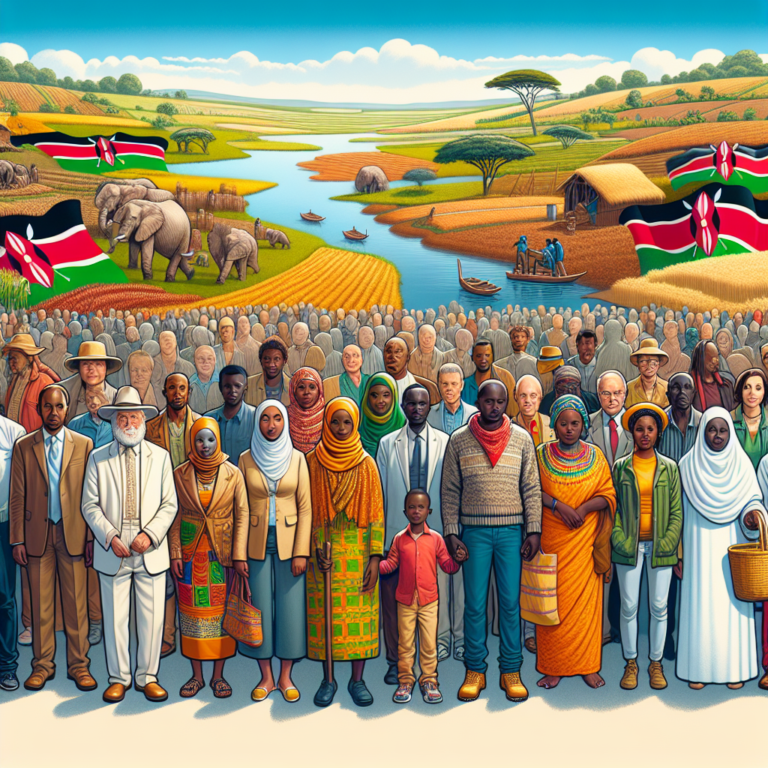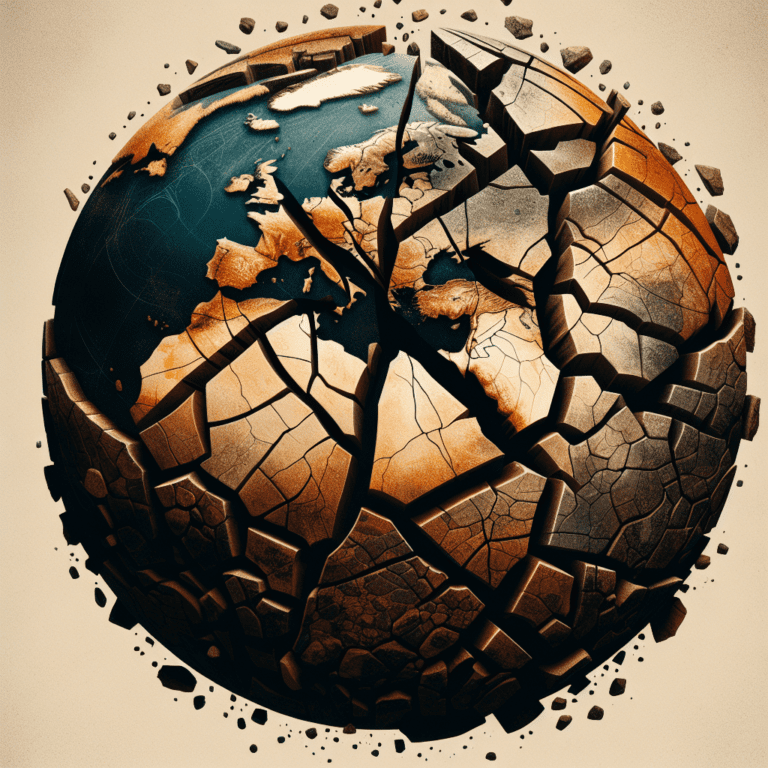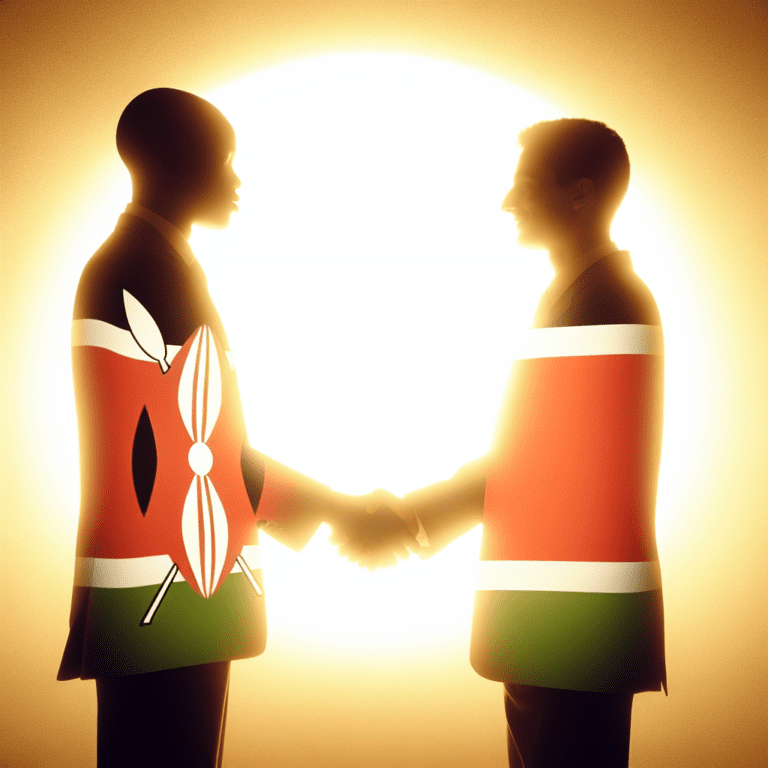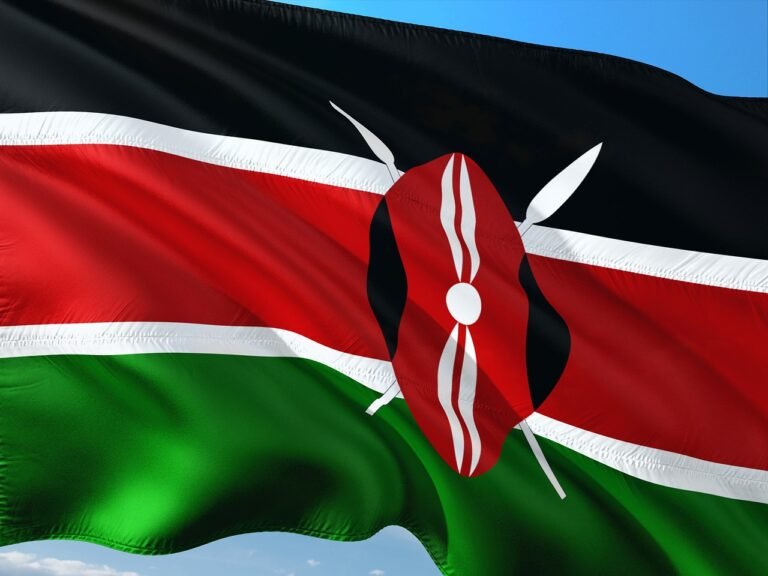Who Was Daniel Arap Moi, And How Did He Impact Kenya?
Daniel Arap Moi, a significant figure in Kenya’s history, left an indelible mark on the nation during his presidency from 1978 to 2002. As you delve into his life, you’ll uncover a complex and controversial leader who transformed Kenya’s political landscape and faced both admiration and criticism. Throughout his tenure, Moi implemented policies that shaped various sectors, such as education and economy, while also leaving a lasting impact on Kenya’s democracy and human rights. Join us as we explore the life and legacy of this influential figure, examining how he shaped Kenya’s past and continues to impact its present.
Early Life and Education
Birth and Family Background
Daniel arap Moi was born on September 2, 1924, in the small village of Sacho, located in what is now Baringo County, Kenya. He belonged to the Tugen sub-tribe of the Kalenjin ethnic group. Moi’s father, Kimoi arap Chebii, was a leading member of the local community and a respected farmer. His mother, Kabon, played a vital role in Moi’s upbringing, instilling in him a strong work ethic and a sense of discipline. Moi grew up in a humble family, which played a significant role in shaping his values and character.
Education and Schooling
Moi’s early education was limited to mission schools due to the lack of formal schooling opportunities in rural Kenya at the time. He attended various missionary schools, including the Africa Inland Mission School and the Kapsabet Teacher Training College. These institutions laid the foundation for his academic development and personal growth. Moi’s commitment to education propelled him to pursue further studies at Tambach Teachers Training College, where he obtained his primary school teacher certification. Despite the challenges he faced in accessing education, Moi’s perseverance and dedication to learning shaped his path towards a remarkable future in politics.
Entry into Politics
Joining the Kenya African National Union (KANU)
Moi’s entry into politics began in the early 1950s when he joined the Kenya African Union (KAU), which later transformed into the Kenya African National Union (KANU). KANU was a political party established to advocate for the rights and interests of Africans in Kenya, who were under British colonial rule at the time. Moi’s involvement in the party marked his commitment to fight for social justice and political liberation for the Kenyan people.
Rise within KANU
Moi quickly rose through the ranks of KANU, thanks to his excellent organizational skills, charisma, and dedication to the party’s ideals. He held various positions within the party, including Secretary-General and Chairman of the Rift Valley region. His ability to mobilize grassroots support and build alliances contributed significantly to his rise within the party. Moi’s rise to prominence within KANU laid the groundwork for what would eventually be a long and influential political career.
Appointment as Vice President
In 1967, Moi received a significant endorsement when Jomo Kenyatta, the first President of Kenya, appointed him as his Vice President. This appointment was not only a testament to Moi’s political prowess but also a strategic move by President Kenyatta to ensure stability and unity within the nation. As Vice President, Moi played a crucial role in supporting President Kenyatta’s leadership and implementing key policies and reforms.
Presidential Era
Ascension to Power
Following the death of President Jomo Kenyatta in 1978, Moi succeeded him as the second President of Kenya. His ascension to power marked a significant turning point in the country’s political landscape. Under his leadership, Kenya experienced a mix of both stability and uncertainty, progress and challenges.
Consolidation of Power
Moi’s early years as President were marked by efforts to consolidate his power and establish his authority. He initiated measures to centralize power and control key institutions, ensuring that his political agenda would be implemented effectively. This consolidation of power, while providing stability in some aspects, also raised concerns regarding the democratic principles and checks and balances within the government.
National Unity
One of Moi’s primary goals as President was to foster national unity among Kenya’s diverse ethnic groups. Placing emphasis on the concept of “Nyayo” (footsteps), Moi aimed to create a sense of common purpose and identity among Kenyans. He encouraged the celebration of cultural diversity while promoting national cohesion. However, achieving true unity in a country with multiple ethnic backgrounds proved to be challenging and often resulted in tensions and conflicts.
Authoritarian Rule
Moi’s leadership style was often characterized as authoritarian, with limited tolerance for dissenting voices or opposing political parties. Critics argue that his presidency was marked by restrictions on press freedom, suppression of political opposition, and curtailment of civil liberties. While some argue that his authoritarian methods were necessary to maintain stability in a rapidly changing country, others saw them as undermining democratic processes and stifling political pluralism.
Economic Policies and Development
During his presidency, Moi implemented various economic policies aimed at fostering development and reducing poverty in Kenya. His government pursued import substitution industrialization, promoted agricultural development, and prioritized infrastructure projects. However, the impact of these policies on the overall economy was mixed, with challenges such as corruption and mismanagement hindering their full potential.
Education and Social Reforms
Moi recognized the importance of education as a vehicle for national development and implemented significant reforms in this area. He prioritized increasing access to education, particularly at the primary level, and made efforts to improve school infrastructure and teacher training programs. Moi’s commitment to education led to an expansion of educational opportunities for many Kenyan children, enabling them to access quality education.
Tribal Clashes and Ethnic Relations
Unfortunately, Moi’s presidency was also marked by tribal clashes and ethnic tensions. Instances of violent conflicts between different ethnic communities occurred during his tenure, particularly in the Rift Valley region. Moi’s administration faced criticism for its handling of these conflicts and accusations of inflaming ethnic divisions for political gain. Efforts to address ethnic relations and promote reconciliation were made, but the impact of these endeavors was limited.
Political Oppression and Human Rights
Arbitrary Detentions and Torture
During Moi’s presidency, there were allegations of arbitrary detentions, torture, and mistreatment of political dissidents. Activists, journalists, and opposition figures were often targeted, leading to a climate of fear and intimidation. Human rights organizations and international observers criticized the government’s handling of political dissent and its disregard for due process and the rule of law.
Suppression of Political Dissent
Moi’s government was known for its intolerance of political dissent, often employing repressive measures to silence opposition. Opposition parties faced restrictions and harassment, and their leaders and members frequently experienced arrest, detention, and physical abuse. The suppressive environment created during his presidency led to a lack of political pluralism and limited space for open dialogue and debate.
Violence and Intimidation
The period under Moi’s leadership was marked by instances of violence and intimidation, particularly during election cycles. Political rallies and demonstrations often turned violent, with clashes between supporters of different parties, resulting in injuries and loss of life. Critics argue that the authorities did not do enough to prevent or address these incidents, further deepening divisions among the population.
Corruption and Mismanagement
Rampant Corruption
One of the significant challenges that emerged during Moi’s presidency was the issue of corruption. Kenya witnessed a surge in corruption cases, with political elites and government officials allegedly involved in graft and embezzlement of public funds. The prevalence of corruption posed a significant threat to economic development, eroded public trust, and hindered progress in combating poverty and inequality.
Misappropriation of Public Funds
A key manifestation of corruption during Moi’s era was the misappropriation of public funds. Scandals such as the Goldenberg scandal, in which millions of dollars were fraudulently obtained through export compensation schemes, exposed the extent of corruption within the government. These scandals not only impacted the economy but also contributed to a sense of disillusionment and frustration among the Kenyan population.
Effects on the Economy and Development
The high levels of corruption and mismanagement during Moi’s presidency had severe implications for Kenya’s economy and development. Limited accountability and transparency in the management of public resources hindered investment, impeded economic growth, and perpetuated poverty. Ultimately, this had a detrimental impact on the overall well-being of the Kenyan people and exacerbated existing inequalities.
Foreign Relations
Relationship with Western Powers
During Moi’s tenure, Kenya maintained diplomatic relations with several Western powers, including the United States and the United Kingdom. These relationships were crucial in securing economic aid, investment, and international support for Kenya’s development projects. However, criticisms were raised concerning Moi’s authoritarian leadership style and the government’s human rights record, which strained some of these relationships.
Regional Diplomacy
Moi played a significant role in regional diplomacy, particularly in relation to conflicts in East Africa. He actively sought to mediate and reconcile opposing factions in neighboring countries, such as Sudan and Somalia. His efforts in conflict resolution were recognized internationally, and he played a pivotal role in promoting stability and peace within the region.
Refugee Crisis and Humanitarian Efforts
Kenya faced numerous refugee crises during Moi’s presidency, with large numbers of refugees fleeing conflict and seeking asylum in the country. Moi’s government worked closely with international organizations to provide support and assistance to these refugees. Kenya became a safe haven for people displaced by conflicts in neighboring countries, and Moi’s leadership during these humanitarian crises was widely acknowledged.
Retirement and Legacy
Retirement from Politics
After serving as President for 24 years, Moi announced his retirement from politics in 2002. His decision not to seek re-election was viewed as a critical moment in Kenya’s political history, as it allowed for a peaceful transition of power and a shift towards a more democratic system. Moi’s retirement marked the end of an era, and his departure from political life paved the way for a new generation of leaders to shape Kenya’s future.
Controversial Land Ownership
One aspect of Moi’s retirement that drew criticism was his controversial ownership of vast tracts of land. It was alleged that he acquired land through questionable means, often displacing local communities and taking advantage of his position of power. These controversies raised concerns about inequality, social justice, and the need for land reforms in Kenya.
Philanthropic and Business Ventures
Following his retirement, Moi ventured into various philanthropic and business endeavors. He established the Daniel Arap Moi Foundation, which focused on promoting healthcare, education, and entrepreneurship in Kenya. Moi also became involved in the private sector, investing in real estate and other business ventures. While his philanthropy and business activities aimed to contribute to societal development, they also invited scrutiny and debate.
Public Perception and Historical Analysis
Public perception of Moi’s presidency remains divided. Supporters credit him with maintaining stability during a period of regional turmoil and implementing policies that facilitated economic growth and social development. They view his leadership as necessary for Kenya’s progress. However, critics emphasize the authoritarian nature of his rule, the corruption that flourished under his watch, and the violations of human rights that occurred. Historical analysis of Moi’s impact on Kenya continues to evolve, with ongoing debates and assessments shaping the understanding of his legacy.
Funeral and National Mourning
Public Reactions and Condolences
When Moi passed away on February 4, 2020, Kenya mourned the loss of a significant figure in its history. Messages of condolences poured in from both within the country and abroad, with leaders and citizens expressing their respects and reflecting on Moi’s impact on Kenya. Many Kenyans remembered him as a towering figure who shaped the nation’s trajectory.
State Funeral and Important Attendees
Moi’s funeral was designated as a state funeral, with elaborate ceremonies and protocol fitting for a former Head of State. Dignitaries from around the world, including current and former heads of state, attended the funeral to pay their respects. The funeral proceedings were a reflection of Moi’s influence and the impact he had on Kenya’s political landscape.
National Mourning Period
Following Moi’s death, Kenya observed a national mourning period to honor and remember his legacy. During this time, flags were flown at half-mast, and public events were held to commemorate his life and contributions to the nation. It was a time for reflection, unity, and remembrance of the complexities of Moi’s leadership and its lasting effects on Kenya.
Assessment of Moi’s Impact on Kenya
Political Stability and Authoritarianism
Moi’s presidency was marked by a mix of stability and authoritarianism. While he played a crucial role in ensuring stability within a region plagued by conflicts, his style of governance raised concerns about democratic principles and human rights. The impact of his leadership on political stability remains a subject of debate.
Economic Achievements and Mismanagement
Moi implemented various economic policies that aimed to spur growth and development. While some initiatives yielded positive results, significant challenges, including corruption and mismanagement, hindered the full potential of economic progress. Assessing Moi’s economic impact requires a balanced analysis of achievements and failures.
Education and Social Reforms
Moi’s commitment to education and social reforms resulted in increased access to education and improved infrastructure. However, the quality of education and the challenges faced by the sector require critical evaluation. The long-term impact of Moi’s education reforms and their contribution to national development continue to be studied and debated.
Ethnic Relations and Tribal Clashes
Efforts to foster national unity under Moi’s leadership were accompanied by tensions and clashes between ethnic communities. Ethnic divisions and conflicts were not fully addressed during his presidency, although attempts were made to promote reconciliation. Evaluating Moi’s impact on ethnic relations demands an exploration of both the positive strides and the ongoing challenges.
Human Rights and Political Oppression
Moi’s rule was marred by allegations of human rights abuses, including arbitrary detention and suppression of political dissent. Assessing his impact on human rights necessitates evaluating the extent to which rights were violated and the long-term implications for democracy and the rule of law in Kenya.
Corruption and Misappropriation
Corruption flourished during Moi’s presidency, with significant implications for the economy and development. Analyzing his impact on corruption requires an examination of the scale of corrupt practices, their effects on public trust and investment, and the subsequent efforts to combat corruption.
Foreign Relations
Moi’s diplomatic efforts on both regional and international fronts had a lasting impact on Kenya’s relationships with other nations. Assessing his foreign relations legacy demands an exploration of the outcomes of his efforts, the extent of his influence, and the subsequent implications for Kenya’s global positioning.
Legacy and Historical Interpretation
The assessment of Moi’s legacy and historical interpretation of his presidency is an ongoing process. It requires a comprehensive evaluation of his political, economic, social, and human rights impact on Kenya. As time passes and different perspectives emerge, the understanding of Moi’s legacy will continue to evolve.
Conclusion
Daniel arap Moi’s impact on Kenya was complex and multi-faceted. His journey from a humble village upbringing to becoming Kenya’s second President defined an era of political stability, economic development, ethnic tensions, and human rights concerns. Fostering national unity, implementing education reforms, and shaping foreign relations were hallmark aspects of his leadership. However, controversies surrounding authoritarianism, corruption, and violations of human rights prevail in discussions about his presidency. In assessing Moi’s impact on Kenya, it is crucial to acknowledge both his achievements and the challenges his leadership posed, allowing for a comprehensive understanding of his legacy in shaping the nation’s history.







